Head Above Water: How Four Texas Independent Bookstores Fared the Pandemic
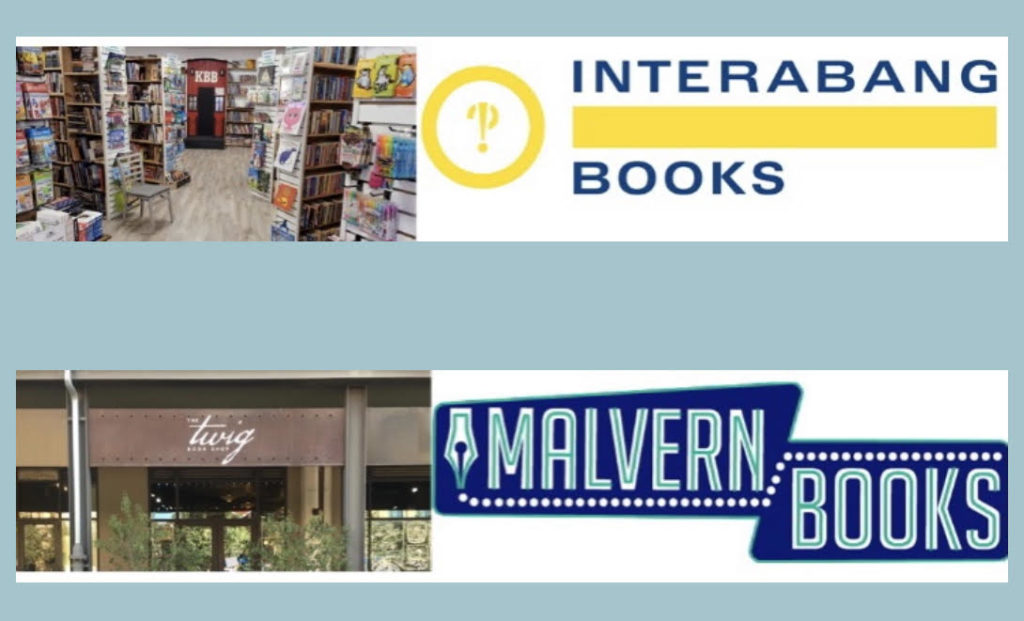

Independent (or “indie”) bookstores are one of the many gems that emblazon and attract others to a community. Within their facets, they serve the local economy, bolster the small business industry, add flavor to a locality, and bring people together. Amidst the past year’s whirlwind of closures, layoffs, adjusted work environments, and various other impediments that affect how a community gathers and stays together, they thrived. Yet, despite the greater availability of vaccines and the leniency in mask-wearing, communities are still facing the long battle to recover from a pandemic’s worth of scars. Fortunately, indie bookstores are there to help with the process, but what’s important to consider is how.
This interview consists of only a handful of the bookstores that decorate the state of Texas, all of which residing in counties listed amongst the highest in COVID-19 cases—Harris, Bexar, Travis and Dallas. Respectively, the bookstores chosen for the interview were Katy Budget Books (KBB), The Twig Book Shop (TWG), Malvern Books (MALV), and Interabang Books (INT) of which current managers and owners—that is, Anna Brown, the Marketing Manager of Katy Budget Books; Claudia Maceo the Manager of The Twig Book Shop; Joe Bratcher, the Owner of Malvern Books; and Lori Feathers, the Founder and co-owner of Interabang Books—had graciously agreed to contribute. From their experiences, one must contemplate how a community overcomes its fractures and works to gleam anew.
Chisom Ogoke: Starting off simple, what attracted you to this bookstore? For example, what did you envision for your community of readers?
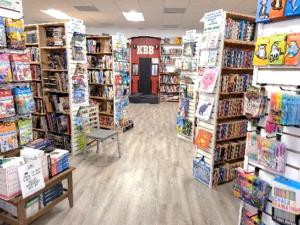
KBB: Katy Budget Books has been my hometown bookstore since I was six years old, so it’s always been my dream job. As first a bookseller and now part of the management team, I got the benefit of an existing community of readers who know they can trust our staff to help them find their next perfect read. On top of all that, KBB really is a general bookstore who wants to match all readers with books they’ll love, which is perfect for me since I read across pretty much all genres. I am so honored to be a part of an ongoing tradition of providing books, events, and great discussions to all members of our community.
TWG: I had been a patron of The Twig Book Shop long before I became manager. The Twig had always had an excellent children’s selection; I was a mom and had been teaching elementary school. They were also the go-to store for more literary books for adults. The owner of The Twig was the late John Douglas and is now Frannie Douglas. When I became manager, he explained that their highest priority was bringing people together. That has been a legacy I can support. We try to represent diverse viewpoints by diverse authors. The Historic Pearl Brewery’s image of becoming the living room of San Antonio appeals to that same goal.
MALV: Starting in 1988, I ran a small independent press called Host Publications. I really loved the work that small publishers were featuring, and personally, I had an interest in international writers of poetry and fiction and their works in translation. I published a number of them at Host and in about 2011 I started envisioning a bookstore focusing primarily on these works—fiction and poetry from small independent presses, with lots of works in translation.
INT: We opened Interabang Books July 1, 2017. The impetus for opening the store was to mobilize a group of talented folks who are passionate about books to share their enthusiasm and knowledge with the Dallas community of readers. As booksellers we have diverse interests and tastes, and it’s always fun to help customers discover books and authors that are new to them. The ideas of seeking and discovery are foundational to our store and are embodied in our store’s name: the interabang punctuation mark is the combination of a question mark and exclamation point.
Ogoke: Texas is known for many things, but not immediately for its literary scene. How is it to be a regional bookstore, especially in a state that isn’t widely known for its reading population?

INT: I believe this is a misconception. Dallas is full of readers. I’m always pleasantly surprised by the customers who walk out of the store with a bag full of books, not just one or two. And almost everyone I encounter is in a book club, and often not just one, but three or four.
TWG: Coming from an education background, getting the right book into readers’ hands is my life goal. The metaphor of “the twig” or trees seems to exemplify our role in the attempt to spread the love of reading. There are publishers, authors, booksellers, and readers who make up the forest of trees or literate communities. We spread the shade that gives respite in the South Texas drought of fewer readers. We also partner with many schools and non-profits to provide books for identified children. And new trees are taking root.
MALV: It’s been wonderful. It turns out that people like to read good writers, even if they are not on the NYT bestseller list! Having a staff who knows our stock well and who are able to make recommendations has really helped. We’re a small store so we know our regular customers and we know what they like to read. Of course we’d like to have a bigger customer base and higher sales but it’s been very gratifying to have so many people who support us and who value the work we do.
KBB: I’ve been a part of the bookselling community for so long, I kind of forget Texas isn’t known for its literary scene, because it really is a vibrant one. There are indie bookstores across our state serving all kinds of niches, and bringing their local reading communities together. We are thrilled to be a part of it. Being an indie means constantly adapting to your community’s changing needs, no matter where you are. Anyone who thinks Texas doesn’t have a fabulous reading population, though, should take a look at all the bookstores and all the author events, storytimes, and literary-themed events they’re hosting all the time across the state.
Ogoke: How has this pandemic changed the ways you relate to other Texas bookstores?
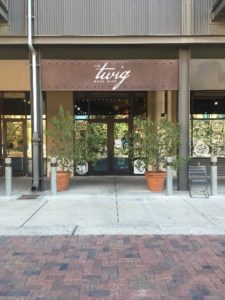
TWG: Booksellers are like teachers in that we are a generous, resourceful, creative group. We regularly (like daily) share ideas, techniques, and solutions to problems we encounter. Our professional associations connect us and have also provided grants. During the pandemic, The American Booksellers Association worked frantically to successfully meet the demands on our website and all websites who use their platform. There are cities with many more independent bookstores than San Antonio, and while it would be inaccurate to say there is no competition between them, there is a healthy respect for the niche each one has. The change during the pandemic is only a strengthened bond and support for one another. We are all too aware that in spite of that support, not all stores have survived these unprecedented times.
MALV: We don’t really network with other bookstores so much, although we do have a great relationship with BookWoman, a feminist bookstore in town—a real Austin treasure. Susan Post, the owner, has been brilliant to talk to and compare notes with. We see ourselves as much alike in our size and the fact that we both have a specialization. And that didn’t change with the pandemic.
INT: I don’t know if it changed the way that we relate to other stores. We always are supportive of fellow Dallas indies, Deep Vellum and The Wild Detectives. Prior to the availability of vaccines, we had more sales via our online store and we also did curbside pick-up, virtual author events, and the store book club via Zoom. I’m happy to say that things are starting to return to normal. We are resuming our in-store book club meetings on June 1, 2021.
KBB: In most ways, our relationship to other stores has stayed the same. Bookstores have always been fantastic at sharing ideas that work, collaborating on events, and coordinating so they’re not poaching audiences. We’re a very friendly industry. The sudden uptick of virtual events at the beginning of the pandemic did lead to some fumbling as we realized we might suddenly be hosting the same author without realizing it or overlapping with a store farther away than would be an issue if readers had to physically come in for an event. Because we’re a friendly lot, those situations were all handled with friendliness and grace. In the very beginning, there was a lot of conversation between all of us as we figured out how we were classified for the shut-down and how we wanted to proceed with reopening once it was allowed. The largest change has really been even more communication between stores than there would be in normal times, both for things like coordinating for bookstore hops on Independent Bookstore Day and due to an increase of industry events we can all attend online so we just see each other more often.
Ogoke: This pandemic has brought various hardships to the small business industry across the board. What were some of the challenges your bookstore faced when it all started and is it still facing these challenges?
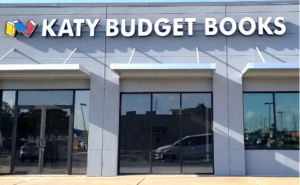
KBB: In the beginning, the biggest challenge was deciding whether to stay open to the public and what limits to set. In some ways, that is still a struggle. We shut our doors when the state required it, then had to decide how to move forward from there. We managed to maintain business by doing doorstep deliveries, and then slowly reopened with limited appointments, masks, and hand sanitizer. We have just finally made the decision to stop requiring masks for all shoppers in-store beginning July 1st. We’ve reinvented how we do business at every step of that process. It feels like no longer requiring masks should mean back to the old normal, but it doesn’t. We’re still not hosting in-store events, because the nature of those means you want a crowd, which we’re not ready to encourage. We’re not planning to restart our kids’ storytime until the fall. Our booksellers still worry about their level of exposure, even though we’ve all agreed it’s time to let customers choose about masks. But there are some challenges we’re not dealing with anymore. Customers are coming in to shop even more than before, partly because we moved to a better location just a few months before the pandemic. We don’t have to reinvent anything we don’t want to, now. And finally, things we had to change for the pandemic actually solved some problems we weren’t sure how to fix before we were forced to rethink how we operate. While there were plenty of challenges, and I’m sure more to come as things get more and more “normal”, as a whole, I feel like we’ve grown a lot through this process, and we know what we’re capable of doing in a way we didn’t before.
TWG: We were able to determine immediately that we fell under the “essential business” criteria since we provide books to educate people of all ages. Particularly since parents had to keep their children at home, we could help with that. We provided curbside pickup and home delivery within our area as phone calls and our website commerce picked up dramatically. We were hesitant about how many employees to have in the store, so we limited the number of staff but continued paying everyone with a PPP loan and a grant from BINC, an industry financial assistance organization. We set up our buyer to work remotely.
The biggest hurdle for beginning to open to the public was the lack of hand and surface sanitizers. When Bexar County provided us with masks, sanitizers, a thermometer, and gloves, and I was able to purchase acrylic guards for the registers, then we continued curbside delivery and added being open for as many as ten people at a time. Keeping count of people was exhausting. A host greeted people, offered hand sanitizer, and took temperatures. One door became the entrance and the door on the other side of the store became the exit to help establish a flow where fewer people might cross paths. Processing and often shipping online orders was time consuming so we modified our hours with processing time at the beginning and end of each day. Now our normal open times have resumed from 10-6 daily and we are able to allow a less monitored number of people in the store, but wearing masks is still non-negotiable. Our neighbors are back in force and tourists have begun to return!
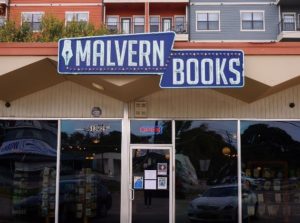
MALV: When it all started we kept trying to decide how long this would last. Do we cancel all the events for the next two months or so, or just keep them on the calendar? We had never used Zoom, we’d never sold anything online before, we wrestled with staffing questions… how to deal with all of that. After a few months, it became clear this was going to be a long haul. We familiarized ourselves with Zoom, took events virtual, added more book clubs to the lineup (virtually), started curbside sales, joined ABA’s BookShop.org and got our “online store” set up, etc. Once we decided to open for appointments it was all about how to keep everyone safe. We are pretty comfortable with all this now. So the next challenge is when to reopen? How to reopen? AND when to start having in-person events again? When is it responsible?
INT: One of the primary challenges was the suspension of in-store author events. To keep our customers engaged with interesting new books and authors, we have hosted many virtual events. We also initiated a “Chats” series where staff interview authors about their new books. And, for the last few months I’ve started a podcast, “Across the Pond,” which I co-host with UK writer and publisher, Sam Jordison. Above all, the pandemic has encouraged us to be nimble and creative about providing important and interesting literary programing to our customers.
Ogoke: A key feature of an independent bookstore is its community presence. With all the precautions, closures, and distancing placed in order to deter the spread of COVID-19, how has your bookstore maintained its community presence? How are you reaching readers?
INT: We publish a newsletter twice a week with staff recommendations, new releases, and information about the virtual events, interviews, and podcasts that we produce. We also have a Signed Firsts subscription club that I curate that delivers a new, signed first edition book to subscribers each month. Our online store and home delivery services also have been extremely popular.
MALV: We have ramped up our social media presence and increased the number of book clubs we host to try to connect with people virtually. But it’s always a challenge!
KBB: We were definitely worried about how to continue being a community space when our community couldn’t come to us. The first thing we did after the shut-down was start offering doorstep deliveries so we could still be the place our community got books in a time when they really needed some escapism. Then, we started a series of videos on social media, first for when readers, like many of our booksellers, couldn’t sleep, and later throughout the day, with things like virtual tours of our shelves so people could shop our inventory even when they couldn’t come in. We started virtual events a little late in the game, just from sheer overwhelm. Even now that we’re pretty fully open, we’re maintaining more of an online presence than we ever have before. We intend to keep having a virtual aspect to our events, even once we go back to in-person, because we’ve realized how much it improves accessibility for our readers.
TWG: Another grant we got was for technology, so our children’s event person, who was not going to schools or holding her popular story time, became our social media goddess! We ramped up our presence every day of the week on Facebook, Twitter, and Instagram, in addition to e-newsletters. Schools opening up again has restored our connection to their book orders for staff development and classroom use. We have really missed our partners all over the city who we have had events with over the years, but a few virtual events have been fun, and we anticipate continuing them into the future.
Ogoke: I believe the phrase “when one door closes, another door opens” is befitting when considering the many adaptations that had to take place to get through the past year. What adaptations worked and did not work for your bookstore? As a follow-up, what ideas or opportunities do you plan to embrace long-term?
MALV: Zoom book clubs have been fantastic. The partnership with ABA’s BookShop.org was very helpful to us and we hope to continue that even though it does cause confusion (people assume everything on the BookShop site is available in the store and that’s not true—we have overlap, but we carry some titles at the store that aren’t available through our online BookShop, and we have some titles on our online BookShop that we don’t carry at the store). We also put merch up on the website and that worked well. Virtual events have been a great way to support the community but tend to result in zero sales. For long-term retail health, we do need to have our events be in-person, as people tend to shop when they are in the store for events. Shopping appointments have been VERY nice! People get 30 minutes of the store to themselves, and it is easy to work one-on-one to provide recommendations. I feel I’ve gotten to know our customers a lot better because of it. I don’t know if we could afford to keep this up after, but it has been something we’ve really enjoyed.
TWG: Many publishers offer virtual events with their authors and some are hosted or moderated by the publisher. These have been so easy to offer and provide books for their fans. Hosting our own virtual events have been few and far between in spite or different bursts of energy by us; they seem to require more energy than we have to offer still. I do not see them going away, however. Stay tuned!
INT: Our Zoom book club was very successful from May 2020 – May 2021, but I’m looking forward to discontinuing it in June 2021 and hosting it in-person, at the store. There’s no substitute for having readers in the store where we can share information and ideas about the books that we are reading and, at the same time, touch and feel the books. I think that we may well continue author interviews via our video “Chats” and through the Across the Pond podcast. The convenience and ease for authors to schedule these really opens up more possibilities to talk to more authors, most far away and some in other countries.
KBB: We have learned so much over the last year and a half. Our doorstep delivery program was beautiful while our doors were shut, but was unmanageable once we were even partially opened. We started doing grab bags of overstock books by the genre for easy curbside pickup, which was fabulous, but harder to maintain now that we’re taking in more books again and having to process them more like we used to. A lot of things worked for the season we were in and then didn’t fit as the situation evolved. As I mentioned in the last answer, though, we do want to continue to offer our events virtually even once we’re back to in-person, to have that accessibility for readers. We also started taking used books in for credit by appointment so that we could limit how much we were taking in because we were storing them in quarantine, and it’s worked wonderfully to keep incoming inventory at a level we can manage and get on the shelves, solving a problem we’d been concerned about since moving into our new space. We also used to host semiannual sales that were probably not going to work in this location, but because of the pandemic, we had to come up with a new format to avoid overcrowding, and came up with our Finds on the First, which will be an ongoing program. I am also personally a cookbook fanatic, and we launched Munch Bunch Cookbook Club, a series of virtual cooking demos, to offer some different programming during this time, and I’m so excited because there’s no way we could do cooking demos in-store. We have learned and grown a lot, but the most important thing has been that we can be flexible and try new things, and our community will appreciate the effort, even when some things don’t work
Ogoke: Now, a fun question: You can put any 2 characters head-to-head for a battle royal—or a very enticing debate—who would they be?
KBB: I would really love to see a debate between Sally from Alice Hoffman’s books and Artemis from Kiersten White’s Slayer duology. One of them has power she doesn’t want, and the other is desperate for power she wasn’t given, and I just think it would be a really fascinating conversation between two women.
TWG: There are too many choices! I was thinking Jane Austen and Roxanne Gay or Margaret Atwood for some rich comparisons in feminist thought through the ages–fictional, fanciful, historical and more! But I could think of a topic and pair any strong thinkers. What fabulous conversations could be had!
MALV: Hmm, characters versus authors? It’s hard to choose. We’ll go with two authors that we really love and who intrigue us: Dorothy B. Hughes and Ursula K LeGuin–talking about children, marriage and writing. Both of them felt the effects, although LeGuin managed to continue writing (but never got her PhD) and Hughes felt she had to stop writing to raise her children.
INT: How about a fight to the death between Ted Tice and Paul Ivory from Shirley Hazzard’s “The Transit of Venus?” This confrontation never happens in the novel, but it makes me wonder if Hazzard would allow the good guy to win!


